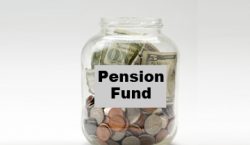


 South Korean government also said they will use censorship to stop the spread of fake news but critics have just accused the government of using this tactic to ‘impede freedom of speech’.
South Korean government also said they will use censorship to stop the spread of fake news but critics have just accused the government of using this tactic to ‘impede freedom of speech’.
Fake news is a public enemy hiding behind the cover of free speech. We can no longer turn a blind eye to it.
Lee Nak-yon – South Korean Prime Minister
These seem like pretty reasonable reasons for a government to want to control what’s broadcast on the internet. Unfortunately, the South Korean government has gone about implementing these measures in an ‘interesting’ manner.
Firstly, there isn’t a really defined scope of what is harmful and bloggers with different ideologies from the ruling party have been arrested before. This lack of openness in defining what harmful content is has meant that a number of sites are inexplicably blocked and there isn’t much that can be done.
Remember when we said North Korea was the excuse? Well, as far back as 2005 there were already 3167 websites blocked despite being unrelated to North Korea.
In February South Korea’s government stepped up their censorship efforts by employing a more intrusive method to internet censorship – SNI (Server Name Indication). This effectively allows the government to track and block access to encrypted (HTTPS) websites. This means the government has compromised privacy at the individual level. Similar methods are employed by China (far from a democratic nation) and users now have to use VPNs to visit certain sites.
All this would be less of an issue if an independent body was used to determine what stays and what goes. KCSC (Korean Communications Standards Commission) tasked with controlling what gets blocked isn’t exactly independent. The organisation which KCSC is housed in -KCC- is controlled by 5 members. 2 of those are directly appointed by the President and the other 3 are appointed by the national assembly. Not exactly a beacon of neutrality.
We’ve had a number of discussions around the issue of internet freedom over the past few years but one thing that is increasingly clear is that if the government is in control of what users can access on the internet (without being held back by independent bodies ), regardless of how justified the reasons (fake news) are, it will be used beyond that – unless of course part of the reasons include censorship of opposition or anyone with views differing from those of the ruling party…
If anything goes wrong, click here to enter your query.
Quick NetOne, Telecel, Africom, And Econet Airtime Recharge
The post South Korea Is Taking One Out Of China’s Book & Increasing Internet Censorship appeared first on Techzim.
Sorry. No data so far.

